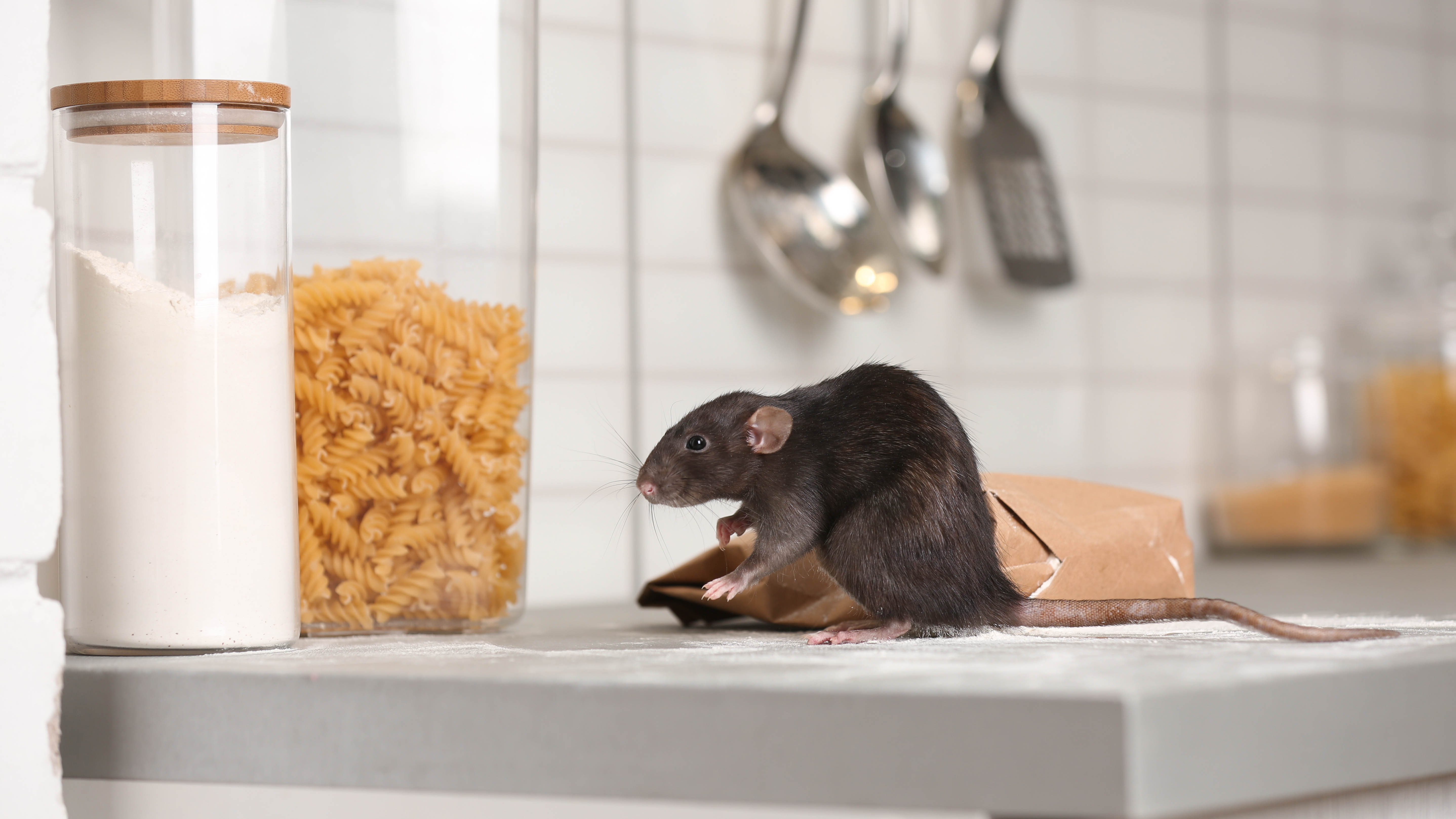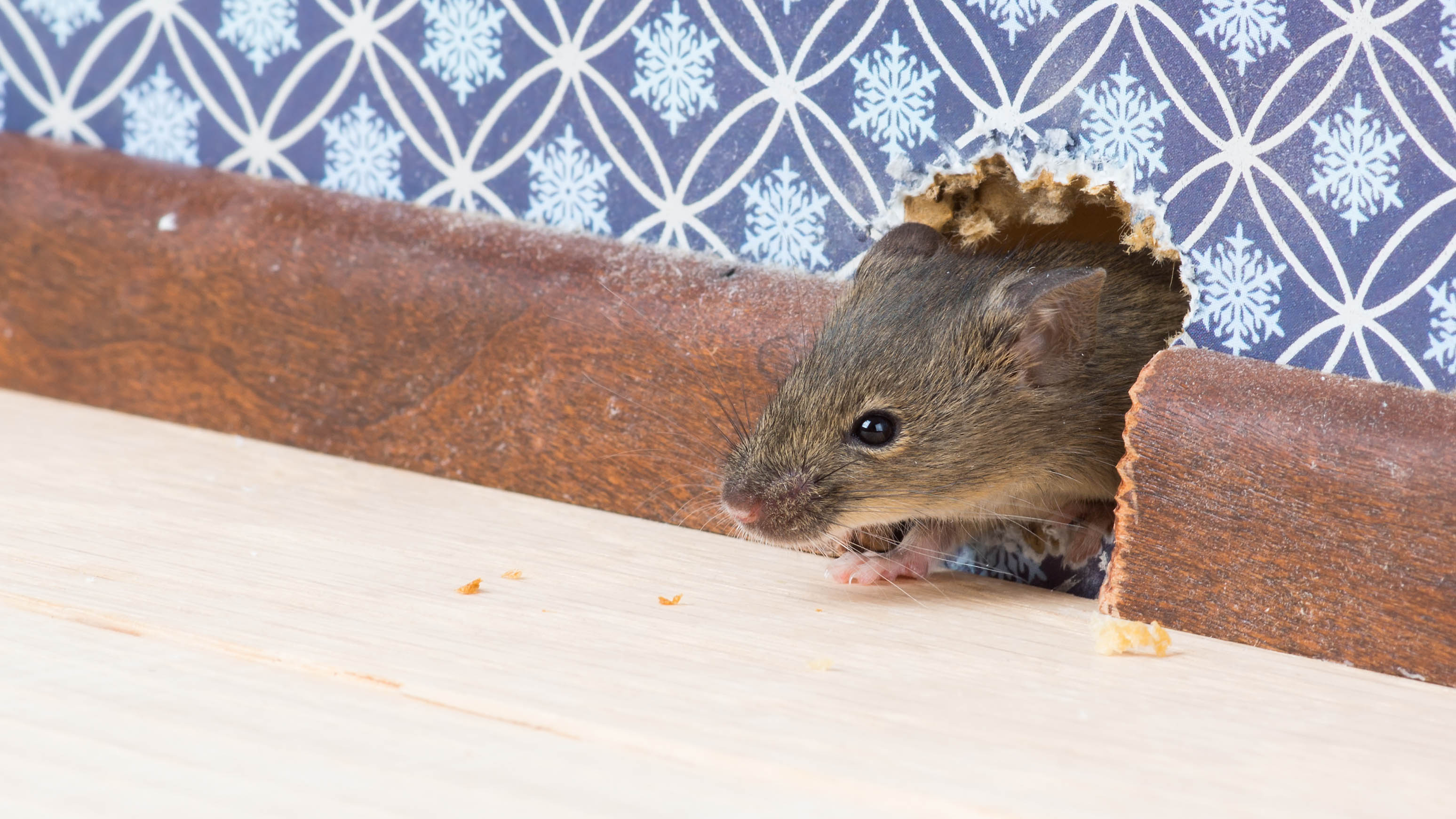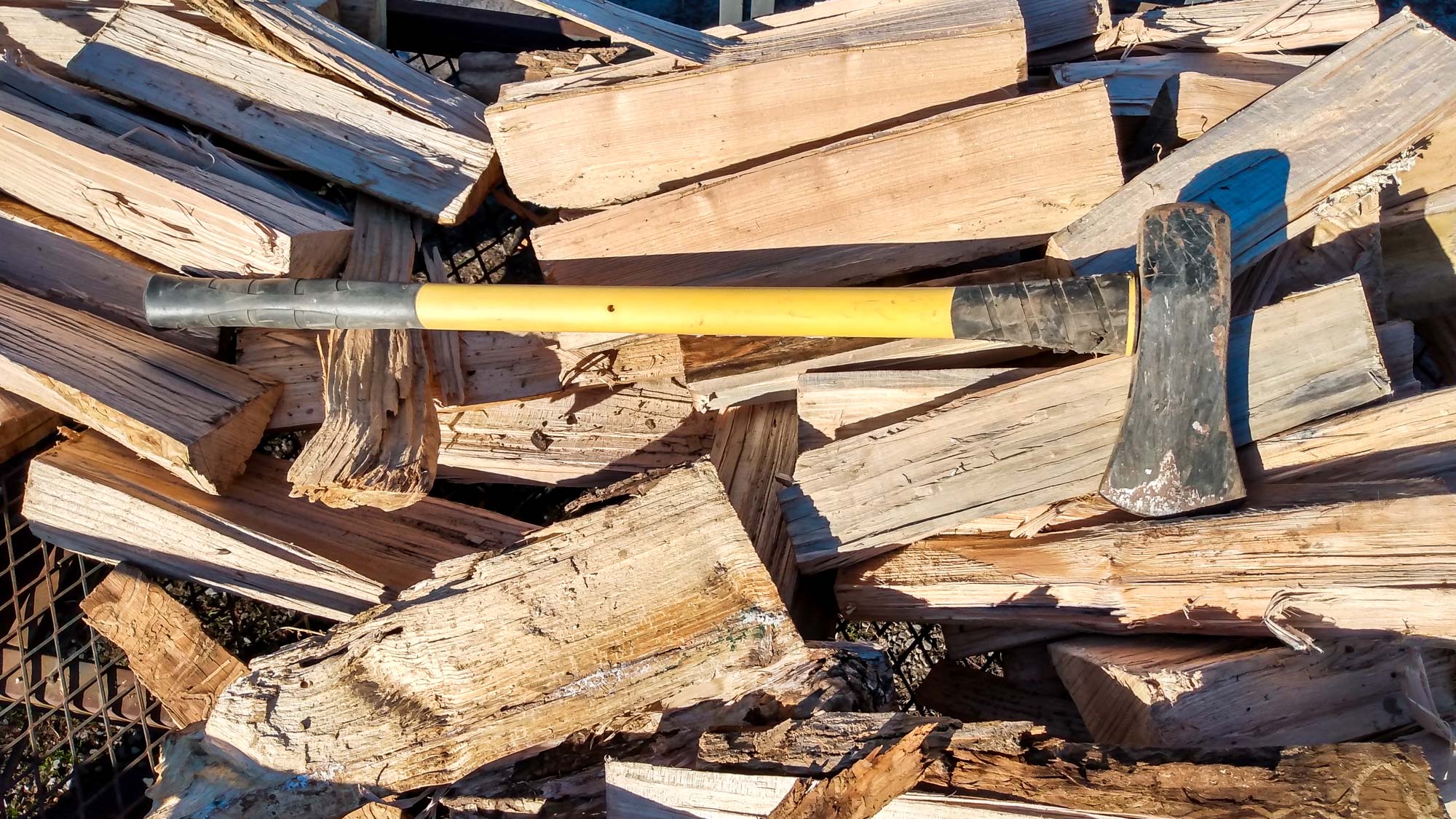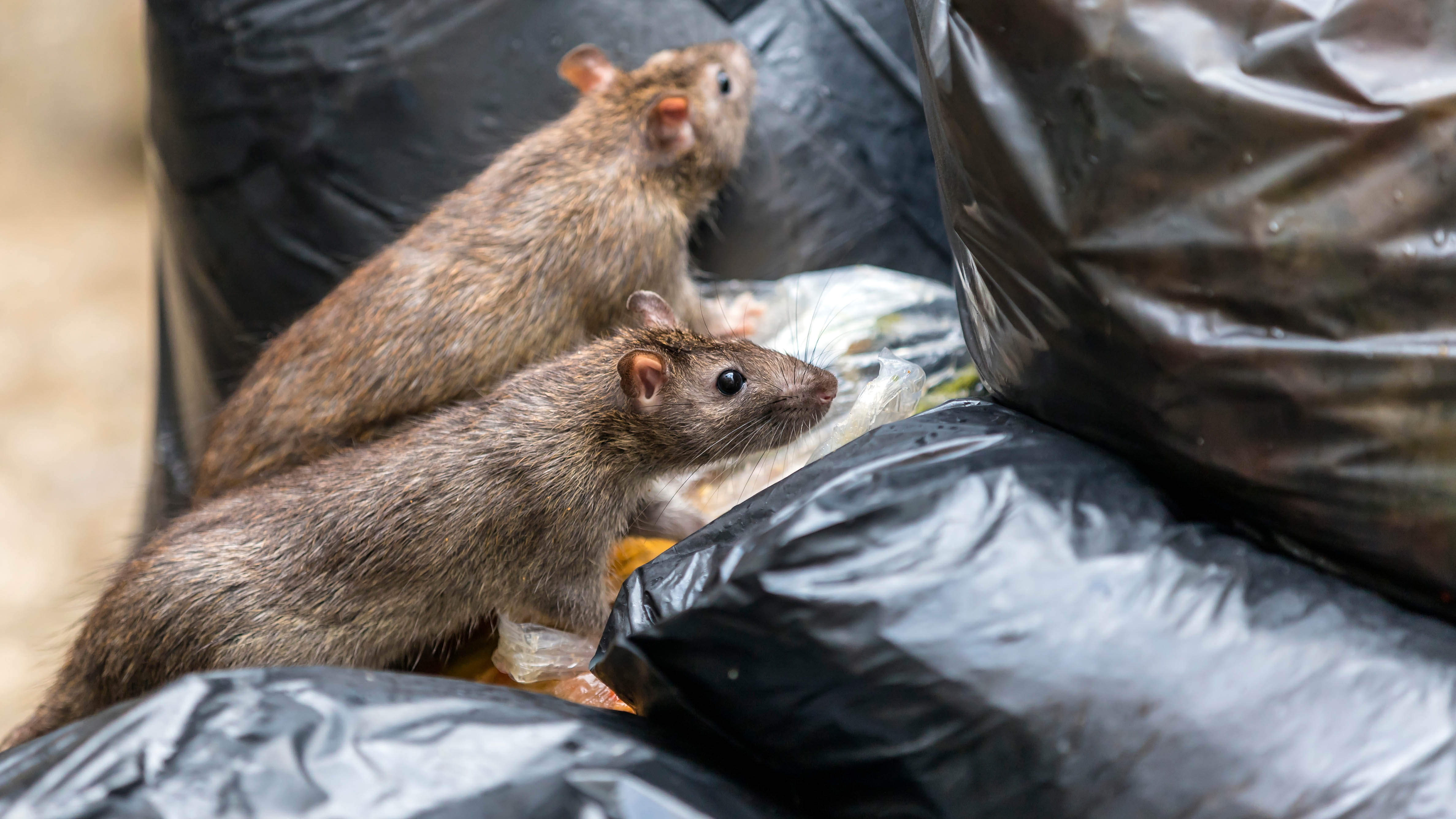Experts say we're entering 'peak rodent season' — 3 simple tips to protect your home
Here’s how to protect your home from a rodent infestation

It’s always unnerving if you spot rodents in or around your property. And as the months get colder, this is the prime time for rats or mice to seek warmth, shelter and food — unfortunately in our homes, backyards or sheds.
According to experts, we’re entering a “peak rodent season”, as rats are most active between the months of September and November. This is why it’s so important to pest-proof our homes and ensure you’re not unknowingly attracting rodents to your home.
In addition to bringing in a host of diseases or triggering allergies, rodents are notorious for being destructive to property. “As we approach peak rodent season, it’s important for homeowners to inspect their houses and carry out any essential maintenance to help keep their houses vermin-free,” states Greg Wilson, homes expert and founder and CEO of Quotezone. “Because rats and mice are quick breeders, infestations can spiral out of control in no time so it’s important to carry out regular hygiene and maintenance checks to prevent rodents from wreaking havoc on homeowners’ properties and wallets.”
So if you want to pest-proof your home this “peak season”, follow these expert tips — or risk an infestation.
1. Check for holes, gaps and water leaks

Besides food hunting to stockpile for the winter, rodents need warmth and shelter during those colder months. This also means they will find any means necessary to enter your property or out-building through holes and cracks in the foundation.
First and foremost, go around your property to inspect for any holes or potential entry places where mice like to hide. These could include holes or gaps in brickwork, baseboards, around pipes and vent openings. Also be sure to check the garage, foundation, roofs, roof soffits, vents, and areas around the HVAC system.
“Any potential entry points through cracks and small holes should be sealed off to prevent rodents from entering your house,” advises Wilson. “Proper sealing not only keeps rodents out, but also provides insulation, which can help reduce energy costs.”
Sign up to get the BEST of Tom's Guide direct to your inbox.
Get instant access to breaking news, the hottest reviews, great deals and helpful tips.
Seal any small holes in your foundation, siding, and doorway with caulk or weather-stripping such as this Weather Stripping Door Seal Strip ($11, Amazon), as a barrier. In fact, mice can fit through spaces as small as ¼ inch, so the more difficult you make it for rodents to enter your property, the less likely they will return.
In addition, check your pipes to ensure there are no slow leaks or water dripping. “Rodents are attracted to sources of moisture as it provides them with the water they need to survive. As a result, it becomes crucial to take prompt action and fix any leaking pipes or taps to help prevent pests from infesting your home.”
For extra precaution, remove or relocate any standing water sources in your yard, buckets, bird baths and even swimming/paddling pools that can provide a constant source of water for pests.
2. Clear clutter and yard debris

If you don’t want to invite rodents, make sure you declutter areas in your home — particularly, the shed, garage and backyard. “Get rid of any unnecessary items in your living spaces, as well as in your attic or garage,” agrees Wilson. “You should also consider storing your belongings in tightly sealed plastic containers. Get rid of cardboard boxes and containers that don’t fully seal and replace them with glass containers with fitted lids.”
In addition, yard debris can make a great nesting/hiding place for rodents. “The debris in your garden, such as piles of leaves, grass cuttings, excess birdseed and wood, can attract pests by providing them with food, shelter and nesting material.”
To avoid any surprises, clear piles of lumber, and store in a garage, shed or storage unit. If you do need to keep them in an open area, elevate lumber on stringers to prevent them from touching the ground, and absorbing ground moisture. Then, keep covered with a weather-proof material that protects it from the elements.
If you’re wondering what to do with your yard debris, check out these 7 ways to use fallen leaves in your garden.
3. Secure trash cans and keep sanitized

Since rodents will rummage around for any food scraps, trash cans will be their favorite places. Ensure all garbage cans inside and outside your home are completely sealed with tight-fitting lids, and should be deep cleaned to get rid of nasty odors that will entice pests.
“The trash cans inside and outside your house should be clean and properly sealed to prevent the odors from attracting pests,” says Wilson. “Regular cleaning and sanitizing the bins, especially after disposing of food waste, can go a long way in preventing foul odors and protecting your home against an infestation.” This is essential to remove bacteria, dirt and even fly larvae that cause unsightly maggots.
And if you want to try your hand at trapping rodents by enticing them with cheese, don’t even think about it! “Contrary to popular belief, rats and mice are not inherently drawn to cheese,” says Sophie Thorogood, pest prevention specialist at Pelsis Group. “Both are opportunistic feeders and are more likely to be attracted to foods with high sugar or protein content, such as grains or peanut butter. To effectively catch these pests, it's better to bait traps with foods that align with their dietary preferences. Peanut butter or hazelnut spread contains a good mix of high fat and sugar — so this is ideal to lure them in.”
Plus, never leave individual trash bags outdoors, in your garage or basement — especially those containing food waste. Again, this will invite rats and mice to feast on the contents, and cause havoc to your yard.
In any case, always call a pest control specialist if you have an ongoing rodent problem.
More from Tom's Guide

As the Homes Content Editor, Cynthia Lawrence covers all things homes, interior decorating, and garden-related. She has a wealth of editorial experience testing the latest, ‘must-have’ home appliances, writing buying guides and the handy ‘how to’ features.
Her work has been published in various titles including, T3, Top Ten Reviews, Ideal Home, Real Homes, Livingetc. and House Beautiful, amongst many.
With a rather unhealthy obsession for all things homes and interiors, she also has an interior design blog for style inspiration and savvy storage solutions (get rid of that clutter!). When she’s not testing cool products, she’ll be searching online for more decor ideas to spruce up her family home or looking for a great bargain!
-
emzmck So what do you do if you have heavy duty herby curby bins and the rats chew through the lids?? Serious rat infestation where i live. The live in burrows underground in the backyard. There's big holes and mounds all over the place.Reply
